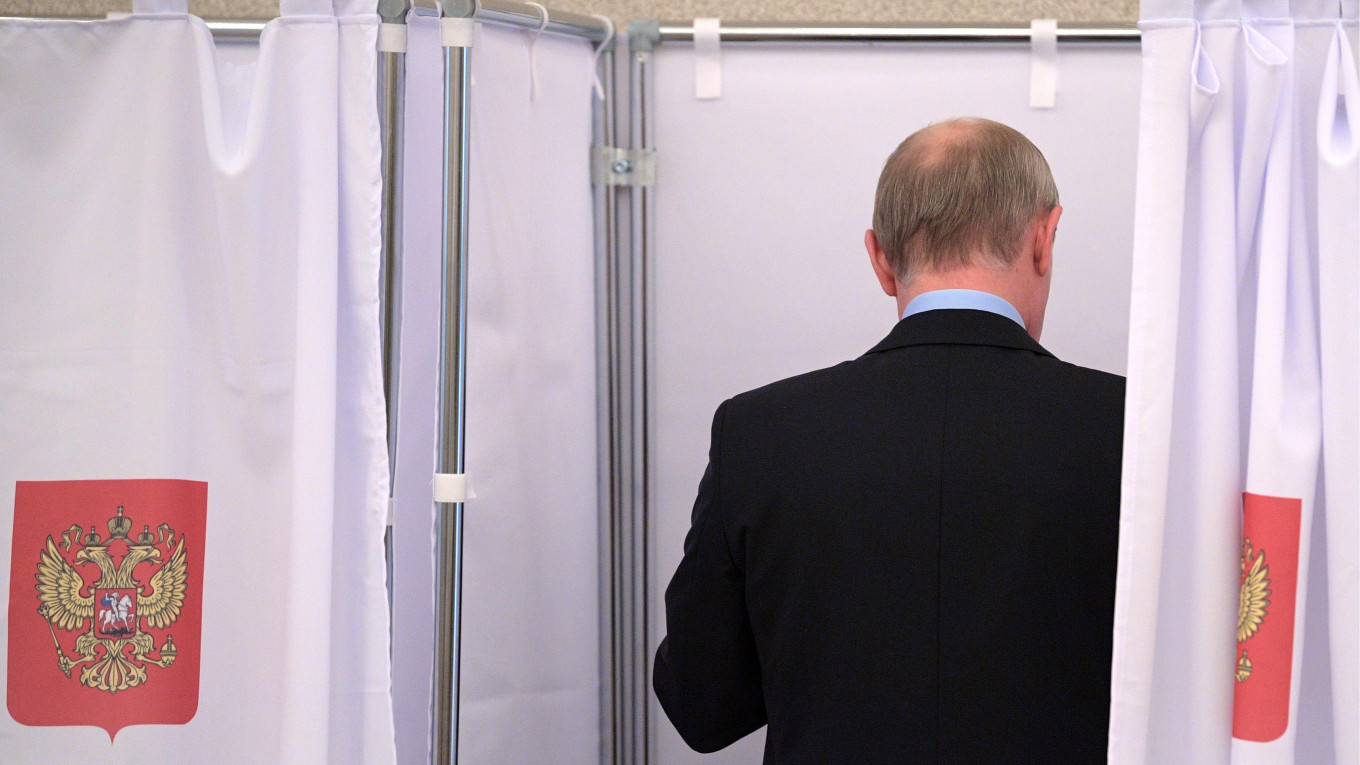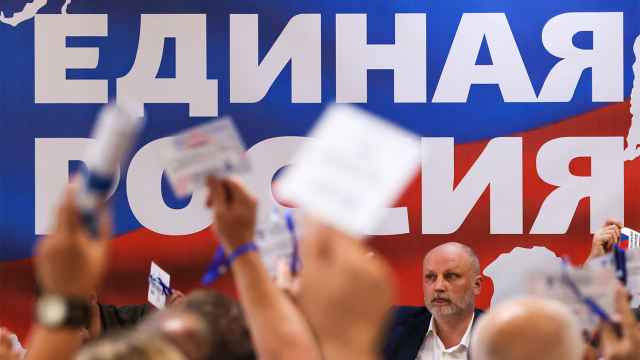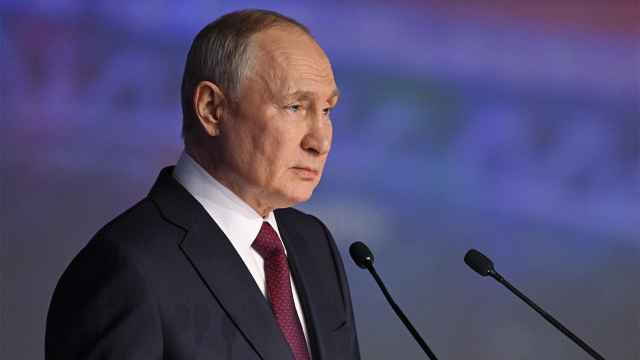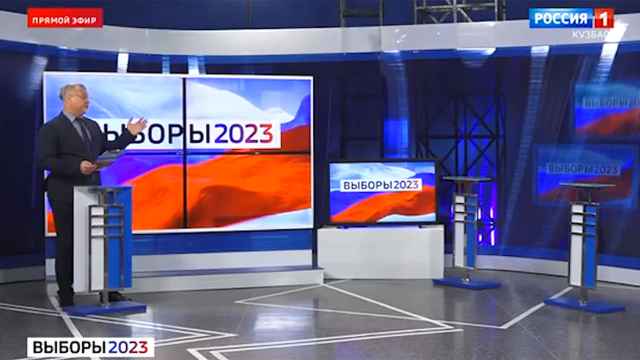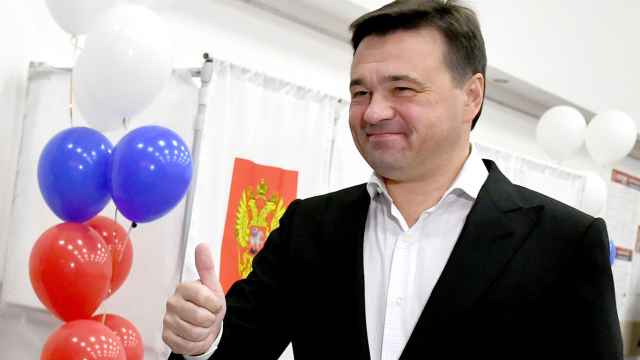Elections to the State Duma look set to be the focus of Russian domestic affairs this year after a turbulent 12 months dominated by succession, constitution and opposition.
Even before the coronavirus upended the world, 2020 had been an extraordinary year for Russia’s usually staid politics.
In January, ex-president Dmitry Medvedev abruptly resigned as prime minister, a position he had held for eight years, to be replaced by Mikhail Mishustin, a politically obscure tax chief. The shock departure of a key member of President Vladimir Putin’s inner circle, albeit one tarnished by allegations of serious corruption, prompted speculation that Russia’s longtime president was planning his own transition out of office.
Within days, Putin quashed all such rumors by announcing a tranche of constitutional amendments enshrining a checklist of political priorities and extending his own personal term limits until 2036, allowing him to remain in office until the age of 84. In July, a referendum widely seen as flawed gave Putin’s plan a thumping endorsement, with 79% of the electorate supporting the constitutional rewrite.
More extraordinary still was the country’s passive reaction to the moves. After a rising tide of protest had roiled the country in 2019, in 2020 the threat of Covid-19 — and its economic fallout — spooked the opposition movement into silence. As neighboring Belarus teetered on the brink of revolution in the summer, Russian opposition activities all but ground to a halt.
Even when opposition leader Alexei Navalny was poisoned with a nerve agent while campaigning in the Siberian city of Tomsk, outcry was limited. His evacuation to Germany for life-saving treatment deprived Russia’s opposition of a charismatic leader who had dominated the anti-Putin movement for a decade.
For Andrei Kolesnikov, chair of the Russian domestic politics and political institutions program at the Carnegie Moscow Center think tank, the result of 2020’s upheavals is that “full-scale authoritarianism has finally taken shape in Russia.”
“Throughout the next year, the state will wage war with civil society on different flanks” as Russia’s authoritarian trend deepens and the government braces for a new, more hostile administration in Washington, Kolesnikov told The Moscow Times.
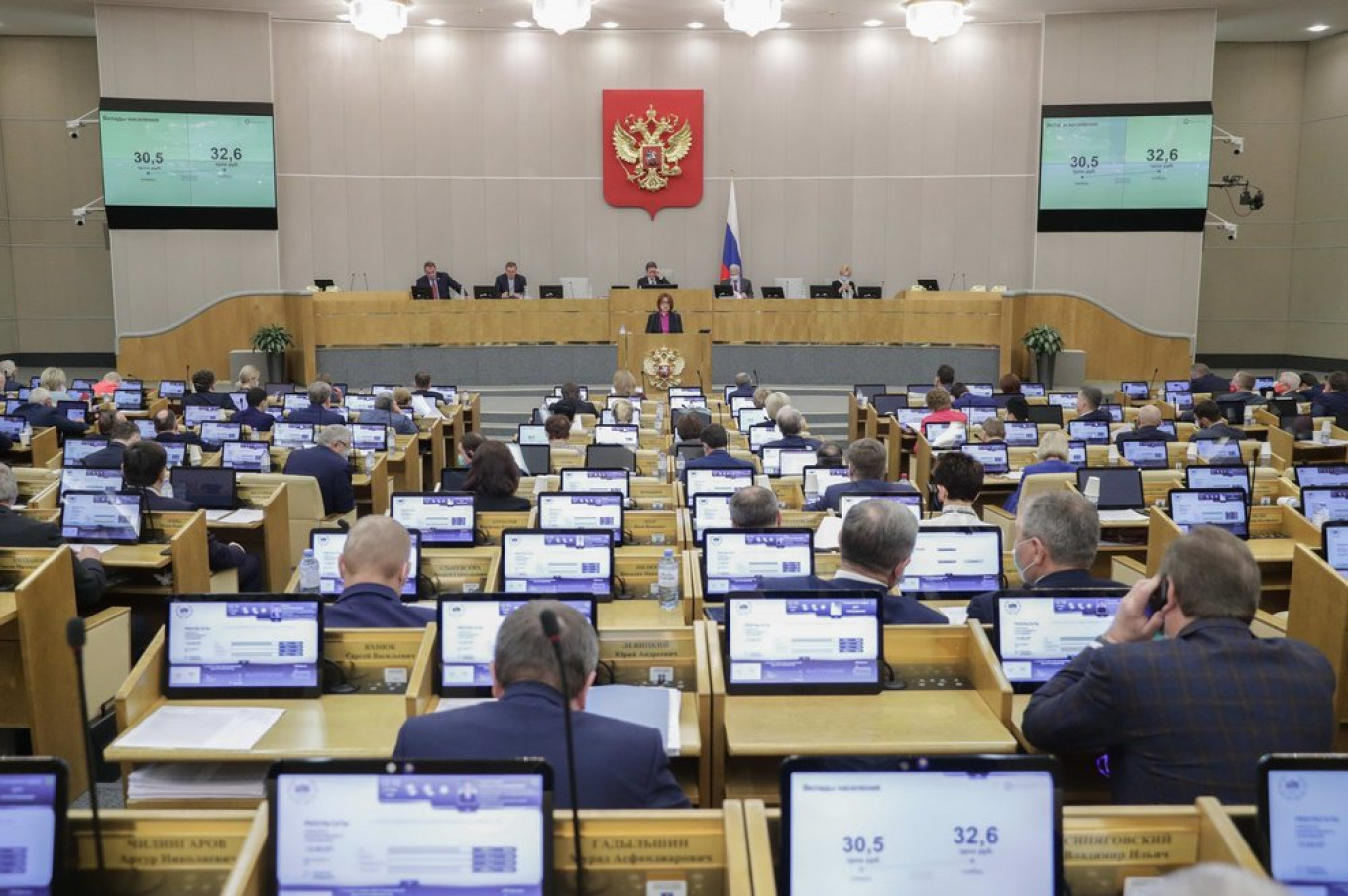
Tense elections
One event dominates Russia’s political calendar for 2021 — the elections to the State Duma, or lower house of parliament, which must be held by September.
Though previous Duma elections have served as flashpoints for opposition protests against alleged rigging, few experts expect this year’s vote to precipitate the sort of crisis that roiled Russia after the disputed elections of 2011. Instead, they predict a tense vote — with the opposition likely returning to the streets after lifting of Covid restrictions — though one ending in a clear Kremlin victory.
While the ruling, pro-Putin United Russia party is widely unpopular, the Presidential Administration — the Kremlin office responsible for managing domestic politics — reportedly expects the party to repeat its 2016 performance, taking over two-thirds of the Duma’s 450 seats.
Few observers doubt that the party will live up to official expectations, despite its support in polling sinking to barely 30% of the electorate after having shouldered much of the blame for an unpopular 2018 rise in the pension age.
“United Russia may be unpopular, but it’s still more popular than any of the alternatives,” said Maria Lipman, senior associate at the program for new approaches to research and security in Eurasia at George Washington University.
“Everything will play into United Russia’s hands,” said Alexei Mukhin, director of the Center for Political Information think tank.
“The return to normality after the pandemic, a continued anti-corruption campaign, a rally-round-the-flag effect if there’s new pressure from the Biden administration — all this will deliver United Russia another big victory.”
Others emphasize that United Russia’s victory will, in any case, be assured by an uneven electoral playing field. The party is likely to benefit not only from massive state support — so called “administrative resources” — but also from the introduction of the multi-day early voting first used in July’s constitutional referendum, which critics say facilitates vote rigging.
“The electoral innovations introduced in 2020 ensure tight state control over the 2021 Duma elections and minimize the chance of unwelcome results,” said Lipman.
Most see a strong endorsement of United Russia at the polls as essential to the Kremlin’s legitimacy amid shifting international politics.
“The administration needs a big vote of confidence to show the Biden administration that Russia is united behind the Kremlin,” said Konstantin Kalachev, a political scientist and head of the Political Expert Group.
However, though few observers predict major unrest around the elections, some see risks for the Kremlin if United Russia scores too large a victory.
“If hardliner advisers persuade the president that the election is all just part of a proxy war with the U.S., then it could become just an exercise in demonstrating national unity, delivering the highest possible vote,” said Yekaterina Schulmann, a political scientist and radio host for the Ekho Moskvy station.
Schulmann suggested that an excessively large United Russia majority, while not resulting in immediate protests, could pave the way for a future repeat of this summer’s events in Belarus, where President Alexander Lukashenko’s claim to have won 80% of the presidential vote fuelled huge popular anger and an ongoing protest movement.
“An implausibly high pro-government vote could delegitimize parliament and erode trust in the system. That would risk protests in the lead up to 2024, when Putin himself is up for re-election,” she said.
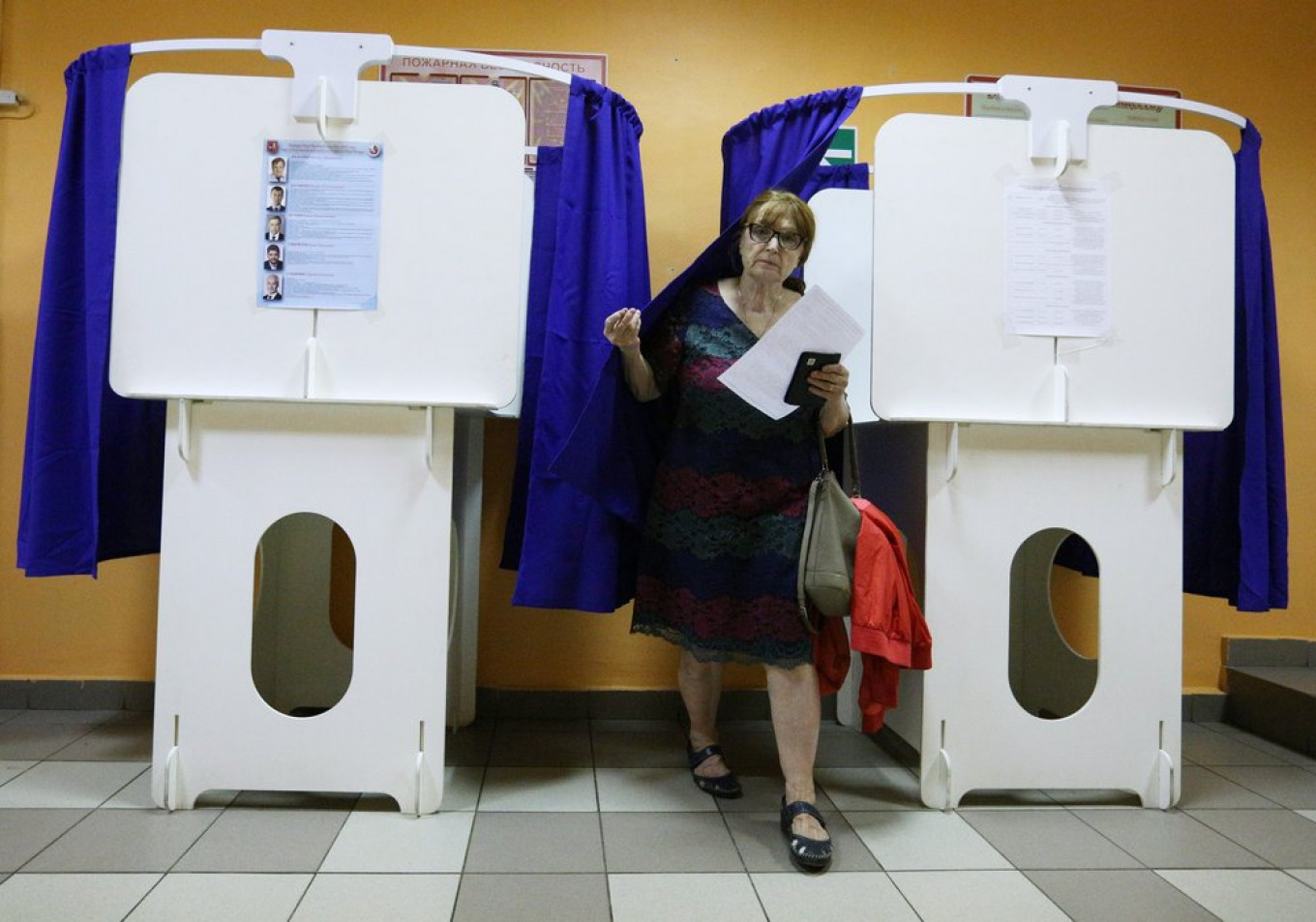
Systemic opposition
There is broad agreement that the elections’ big loser is likely to be the systemic opposition — the patchwork of nominally oppositional parties that have traditionally been allowed to compete on Russia’s uneven electoral playing field while remaining fundamentally loyal to the Kremlin.
All three opposition parties with significant representation in the Duma — the communists, the far-right LDPR, and the center-left A Just Russia — are in long-term decline and helmed by aging, veteran leaders. Having previously attracted anti-Kremlin tactical voters, they are now seen as increasingly discredited, and likely to suffer at the polls.
“The LDPR and the communists are old, tired brands with old, tired leaders,” said Alexei Mukhin, who predicts especially heavy losses for the communists.
Though a number of new, pro-Kremlin parties have been founded in recent months, from the liberal New People to the ultranationalist For Truth outfit, few expect them to do well.
“New People could win some seats in the Duma,” says Alexander Kynev, professor of political science at Moscow’s Higher School of economics.
“Historically, the electorate does tend to like shiny, new parties and is willing to vote for them. Even then though, New People are very much on the edge of 5% of the vote they’d need.”
Even if the new parties do fail to win seats, however, the Kremlin stands to gain. Parties that poll beneath the 5% threshold have their votes reallocated to those parties that exceed it, a process likely to benefit United Russia as the country’s largest bloc.
Hanging over the Russian political scene is the fate of its most prominent opposition leader, Alexei Navalny.
Though Navalny — who is still currently in Berlin, recovering from the attempt on his life — commands only a small minority of popular support, his high profile and dominance of the anti-Kremlin opposition gives him national significance beyond activist circles.
“Navalny is not popular. Most of the population sees him as a western agent. But he is famous — and that is important,” said Dmitry Oreshkin, a freelance political commentator.
The Kremlin seems to agree. It is reportedly deeply disturbed by Navalny’s Smart Voting scheme — an anti-United Russia tactical voting system that has achieved mixed results since its debut three years ago — and which will be used against the governing party in the Duma elections.
“I would expect real pressure on any non-United Russia candidates who might benefit from Smart Voting,” said Oreshkin.
“They may well be forced to withdraw to avoid giving Navalny even the appearance of a victory,” he added.
Navalny's now-infamous prank call, in which he appeared to trick one of his would-be FSB assassins into confessing to his part in the attempt on his life, has only raised the stakes for the activist, himself long accused by the authorities of cooperating with foreign intelligence agencies.
New criminal probes into alleged fraud and incitement to overthrow the government by Navalny are being interpreted as an attempt to keep him from returning to Russia ahead of the Duma elections.
“The new investigation is a signal to Navalny not to return,” said Anton Barbashin, the editor of Riddle, an online journal of Russian affairs.
Though Navalny would likely remain a significant player in Russian politics if unable to return to the country, exile would diminish his relevance to the anti-government protest movement.
“If he doesn’t return, he could become the Tikhanovskaya of Russia,” said Barbashin, referring to Svetlana Tikhanovskaya, the exiled former Belarusian opposition candidate who has been rallying support for anti-government protests in that country since being forced into exile.
“Navalny would retain great symbolic power if stuck outside Russia, but his practical influence would decline as people would begin to lose interest and perceive him ever more as a foreign agent.”
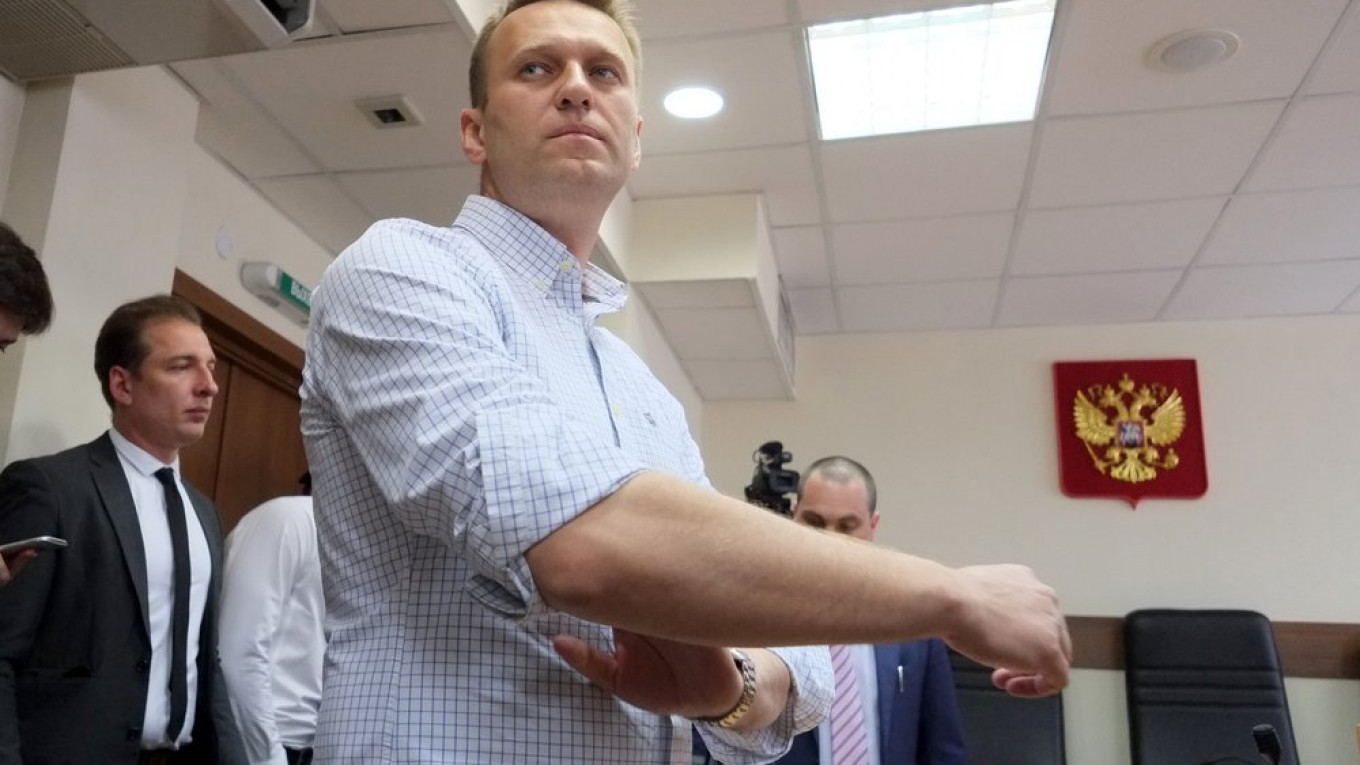
Hunkering down
Above all, observers of the Russian political scene see the coming year as one of retrenchment, as the state, buffeted by the likelihood of tough economic times and a souring relationship with the United States, begins to hunker down.
"No one in the government cares about western opinion anymore,” said Kalachev, of the Political Expert Group.
“Within the government, the balance between liberals and hardliners has come to decisively favor hardliners.”
With the Duma in December having passed a raft of repressive new laws governing those deemed “foreign agents,” clamping down on protests and limiting freedom of speech, many observers expect further restrictions in the year ahead.
According to Kalachev, high-profile prosecutions — such as those of Yury Dmitriyev, a Gulag historian jailed on controversial sexual abuse charges, and Ivan Safronov, a former journalist awaiting trial for treason — are likely to continue as the state girds itself ahead of the Duma elections.
“As political forecasters, at the end of each year we used to look for signs of a thaw,” he said.
“Now it looks like winter will continue indefinitely.”
A Message from The Moscow Times:
Dear readers,
We are facing unprecedented challenges. Russia's Prosecutor General's Office has designated The Moscow Times as an "undesirable" organization, criminalizing our work and putting our staff at risk of prosecution. This follows our earlier unjust labeling as a "foreign agent."
These actions are direct attempts to silence independent journalism in Russia. The authorities claim our work "discredits the decisions of the Russian leadership." We see things differently: we strive to provide accurate, unbiased reporting on Russia.
We, the journalists of The Moscow Times, refuse to be silenced. But to continue our work, we need your help.
Your support, no matter how small, makes a world of difference. If you can, please support us monthly starting from just $2. It's quick to set up, and every contribution makes a significant impact.
By supporting The Moscow Times, you're defending open, independent journalism in the face of repression. Thank you for standing with us.
Remind me later.



